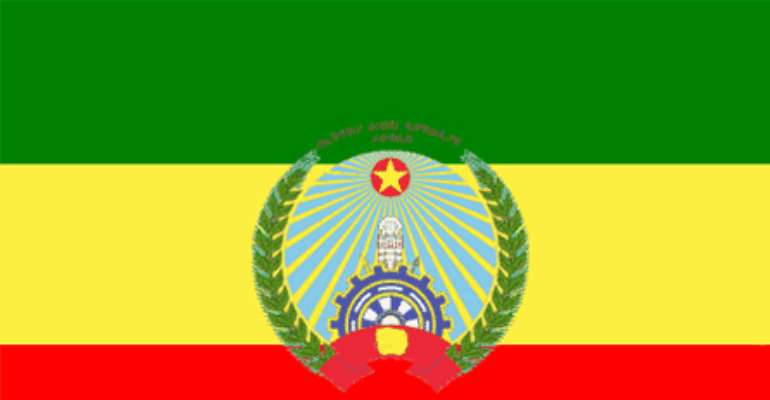Ethnic Tension in Ethiopia: Dear States in the Horn of Africa, be Wary of Ethnic Tensions in Eastern Ethiopia

The horn of Africa is a euphemism for the larger East African region. The region in which we have over ten countries, some of them being Somalia, Southern Sudan, Burundi and northern Uganda-the war torn countries that make those of us living in the region extremely tired of any news of war and ethnic based armed feuds. Yet there is one more Somali based ethnic tension smoldering in Eastern Ethiopia. This ethnically motivated violence in eastern Ethiopia has evidently provoked the new Prime Minister Abiy Ahmed to soul-search his new government for want of strengthening and stabilizing this autonomous region of eastern Ethiopia glimmering with hopes of ethnic based war, but so far the government in Addis Ababa has offered no response. Hence, a justification to have it as a timely clarion call to the countries within the geographies of the Horn of Africa to work promptly on the ways of forestalling the charged Somali community of eastern Ethiopia from exploding into war.
The current political conditions in the region attest positively to the fact that Ethiopia's eastern region remains a hotbed of unrest. The diverse local media in Ethiopia and the Horn of Africa region have severally reported that on 4th of Saturday August 2018, the armed mobs looted the property of ethnic minority groups in Jijiga, the capital town of the semi-autonomous Somali community in eastern region of Ethiopia.
According one local person who declined from divulging his names for security reasons, the armed mobs are attacking residents including those that had taken refuge in the church of St. Michael. The weekend attack reportedly resulted in a dozen deaths. But thousands are already internally and externally displaced. According to Access Now, the internet has been shut down in eastern Ethiopia. Access Now is an international NGO with a focus on digital rights of the people living under threatened security.
Jason Mosley from the British think-tank Chatham House with a focus on the security issues in the Horn Africa has commented that; ‘economic conflicts in the Somali region have worsened since Abiy came into office. The new prime minister promised reforms, and so the population has high expectations, especially the Somali region that has been politically excluded for a long time.’
Political marginalization of the Somali community is traced back to the colonial times when the British and the Italians subdivided the Somali nation into small and powerless communities that currently exist as marginalized minorities in Kenya, Ethiopia, Uganda and Rwanda. The remaining Somalis formed very week states like Djibouti, Somaliland and Somalia.
The Weakness in state of the three mentioned Somali nations has been attributed by experts to blind use of Western and Soviet ideology, religious fanaticism and regular wars that are externally propagated. These are the common views shared by Francis Fukuyama in Political order and Decay as well as Andrew Palmer in his book, The New Pirates. But above all else, prudence in social thinking about the Somali nation will ultimately single out one conclusion that the division of the Somali nation in the past by European colonial adventurers is the hearty cause of current political problems that rock the Somali nationalism. This former balkanization of African nations in regions of economic value to the colonial master is also the key cause among the causes of regrettable experiences in Africa like the Rwanda Genocide, the Sudan wars and so forth.
However, historical misfortunes in Africa’s past cannot work as justifications for deliberate failures in the current governance architectures. Currently, Africa has a duty to make good political decisions. Ethiopia is not an exception in its current juncture which calls for properly nationalized and inclusive approach to the Somali question.
For example, the landlocked Ethiopia relies heavily on ports in neighboring countries, mostly in Djibouti, Kenya and Somalia. All these imports pass through a very impoverished Somali region in the eastern side of Ethiopia. Social logic would obviously dictate that a socially inclusive political approach in Ethiopia will reduce economic and security challenges in Somali region of Ethiopia and hence social stability that would enable the whole of Ethiopia to enjoy passing through the Somali region to use the port of Berbera in Somaliland. This could expand trade of livestock and other goods. That's why the trade routes which run through the Somali region are so important for the Ethiopian economy.
Kilong Wenani, a political scientist at Moi University, with several publications on signals of security break-down in the Horn of Africa reacted to the situation by arguing that several forces can now escalate a small spark into prolonged war in the Horn of Africa, he pointed out that the precarious military presence of China in the Horn of Africa, India’s concern for China’s presence in the Horn of Africa, the Western determination to show military mighty over China in the Horn of Africa , the previously persistent political marginalization of Somalis in Ethiopia, the extant tribal war between Somalis and the Oromos in Ethiopia as well as the collective Somali nationalism across the boundaries of the Countries in the horn of Africa can ultimately explode any spark into full-scale war in the Horn of Africa.
Alexander Opicho writes From-Lodwar, Kenya - [email protected]
